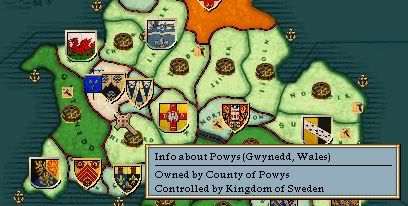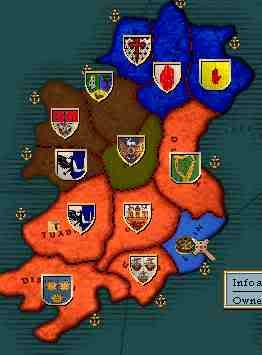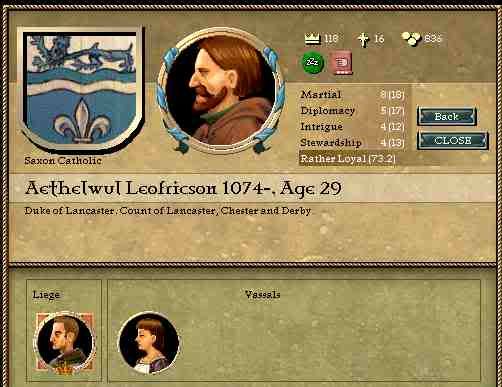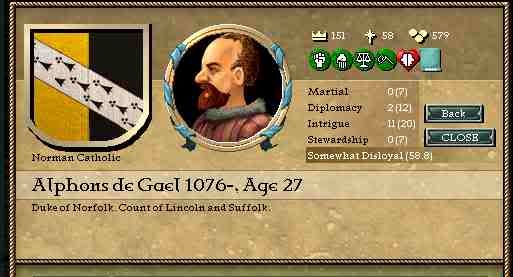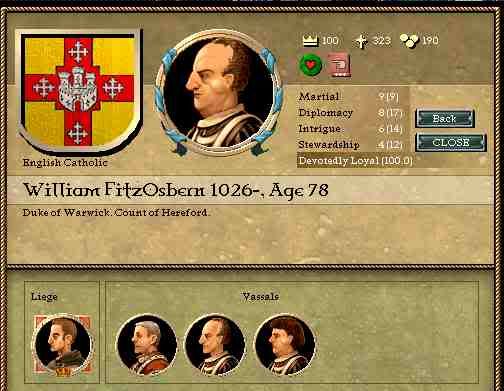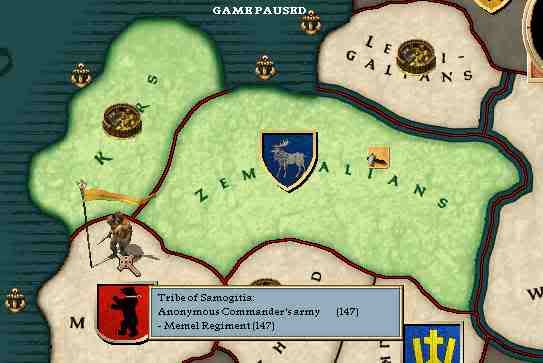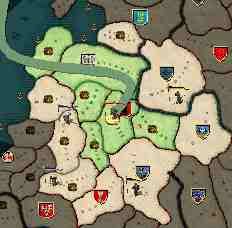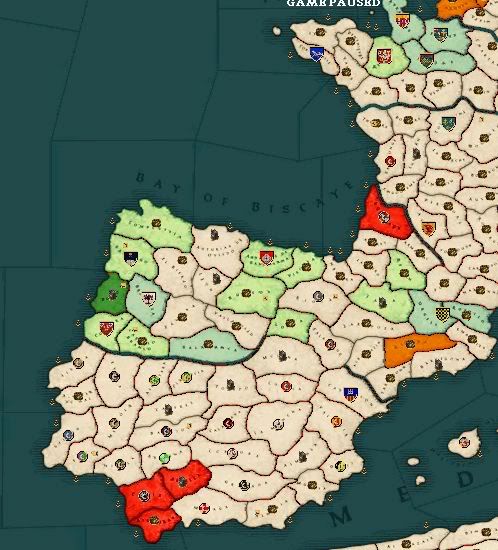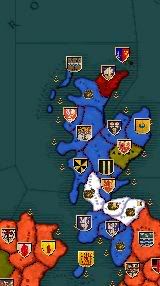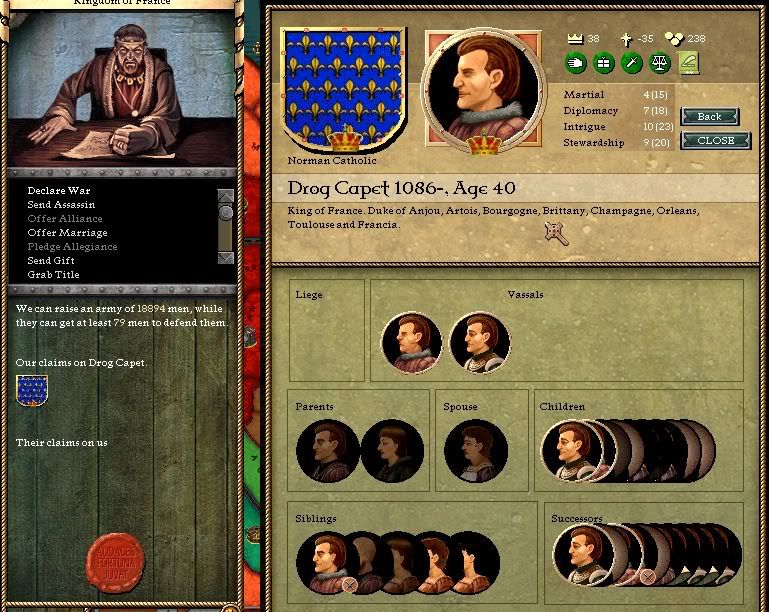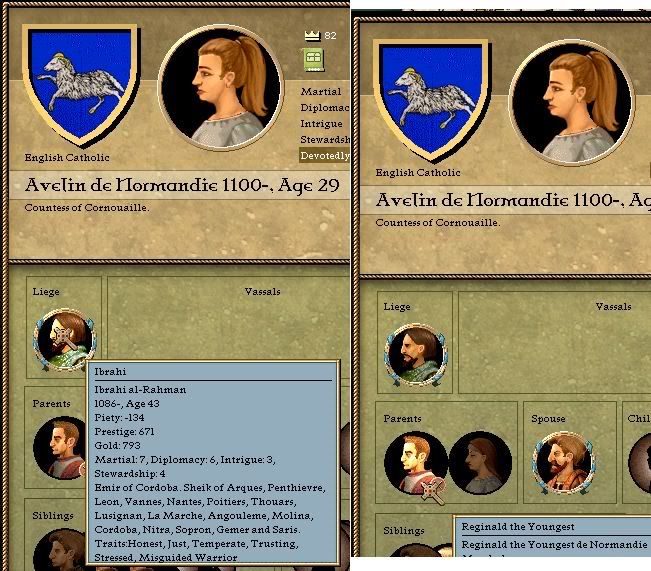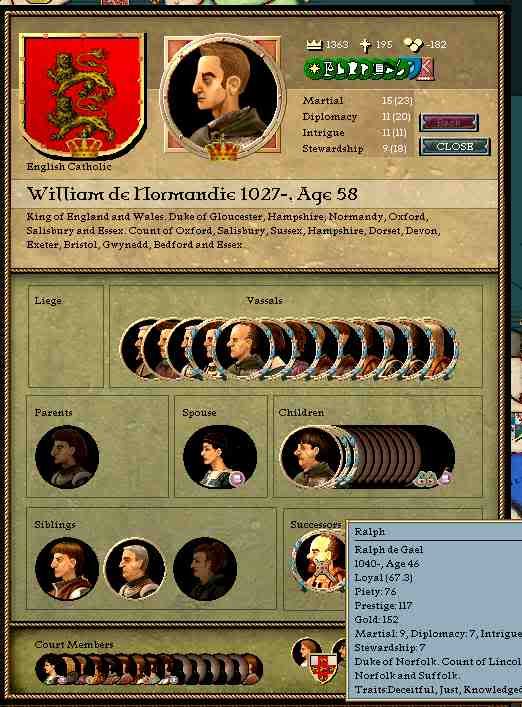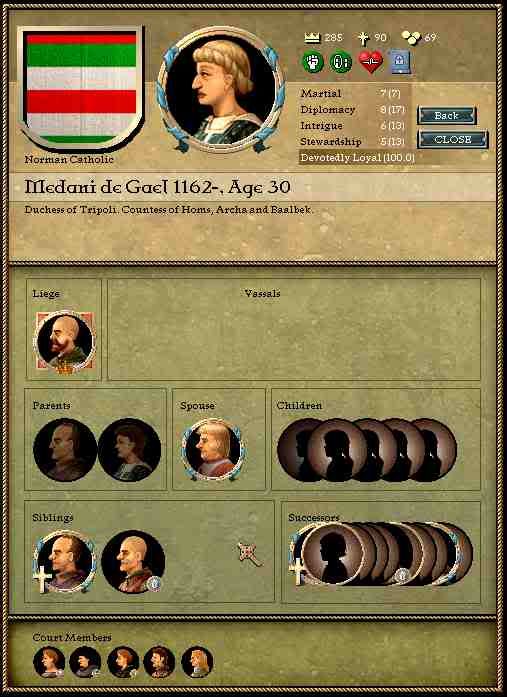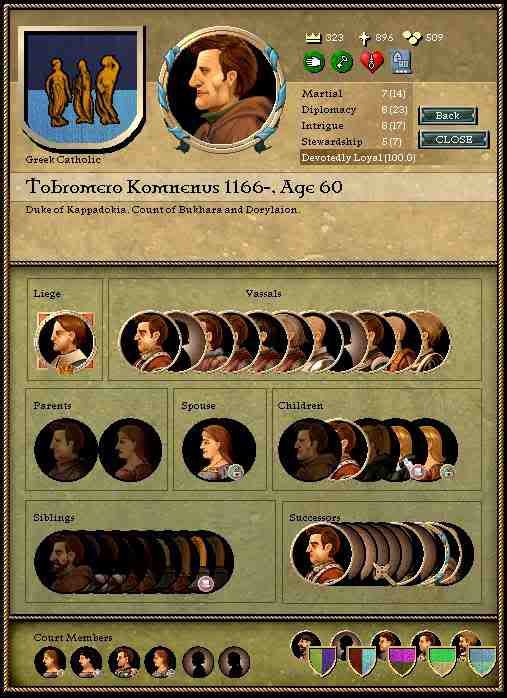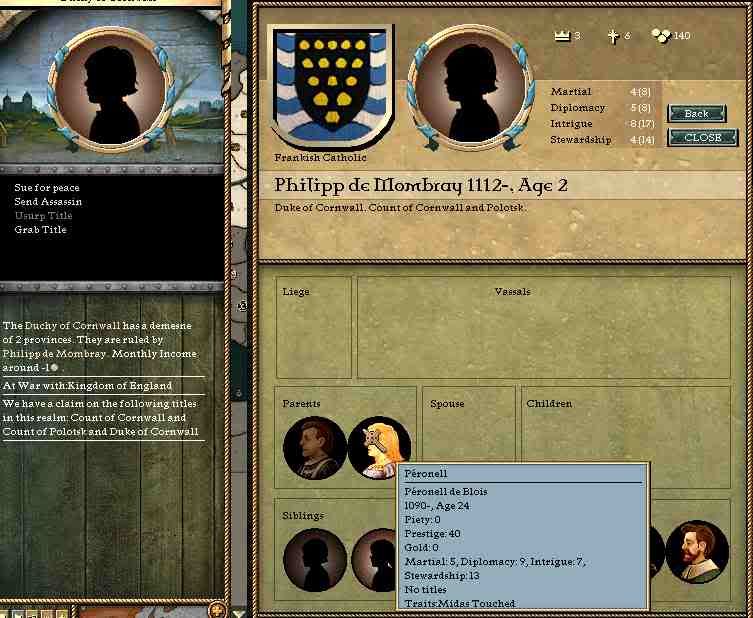November 10, 1226;
On the eve of being crowned King of the Romans and his Domain Cassian, Emperor of Byzantium has asked his kinsman Marshal Sali and Bishop Arei to prepare a short history of his family's rise. The story of the family’s arrival in France, and Rollo’s rise to Duke are well known and will not be covered here. This history will concentrate on royal de Normandies.
The first (and only) royal in our family tree was William de Normandie, King of England. William the Conquerer beget approximately 30 children -- including a series of six bastards named Reginald between 1081-82. Your Majesty, as well as your humble cousin Marshal Sali and Uncle Arei; are descended from William’s bastard son Reginald the Youngest.
William’s accomplishments were legendary. His gigantic empire included 14 full Kingdoms, and large parts of Germany, Lithuania, and several other countries:
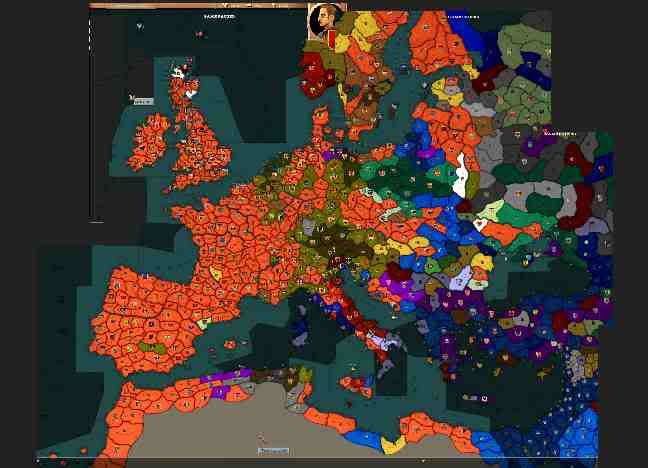
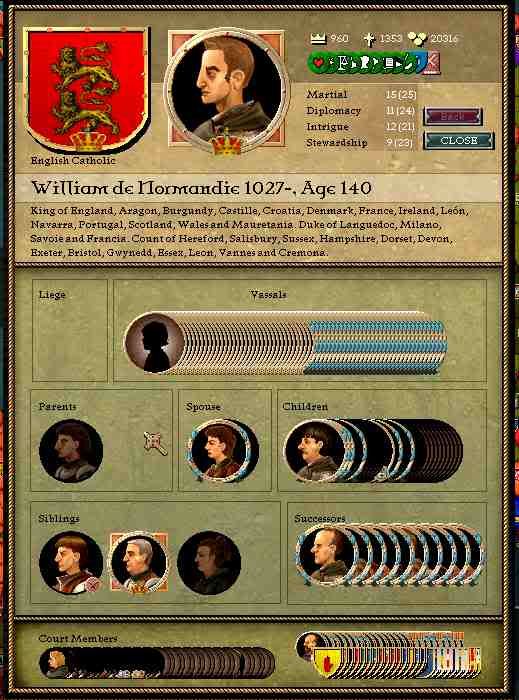
William was so successful that each of his many sons became a Duke. Our own illustrious ancestor, Reginald the Youngest was Duke of Murcia. By the time of William’s retirement to a monastery in 1168 Reginald’s son Davi had inherited:
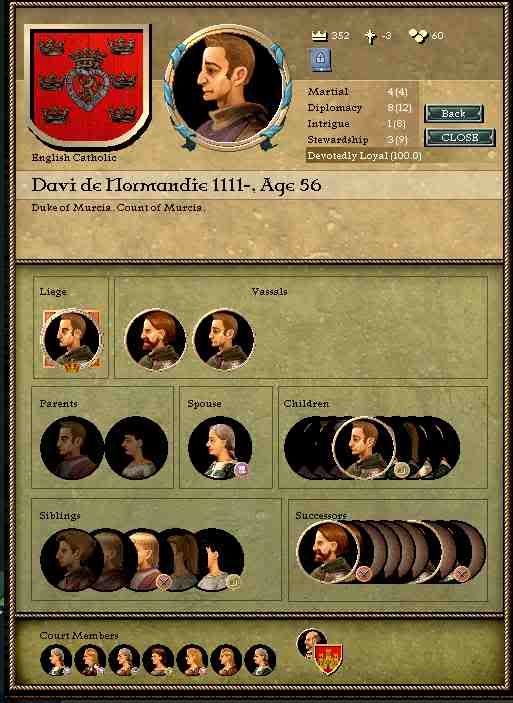
Davi was your Great-great-grandfather. However, as you know, he was only a minor Duke in the de Normandie universe. It is only due to years of being in the right place at the right time, and your predecessor's troubles, that allowed the Murcian line to become the leading line of de Normandie.
The next royal de Normandie’s would be William’s two of William’s legitimate sons from his first marriage:
Robert the Traitor, briefly King of Navarra
Richard, First Norman Emperor
Unfortunately such a huge undertaking as your majesty has requested will take more than a few days. We will tell the stories of Robert, who betrayed his Father several times, his brother once, and still plagues our existence as independent Duke of Navarra and Count of Rioja; and de Normandie rise to global dominion through Emperors Richard, Edward, William, and yourself. We shall also endeavor to tell some stories of William the Conquerer’s expansion from England to his powerful position.
On the eve of being crowned King of the Romans and his Domain Cassian, Emperor of Byzantium has asked his kinsman Marshal Sali and Bishop Arei to prepare a short history of his family's rise. The story of the family’s arrival in France, and Rollo’s rise to Duke are well known and will not be covered here. This history will concentrate on royal de Normandies.
The first (and only) royal in our family tree was William de Normandie, King of England. William the Conquerer beget approximately 30 children -- including a series of six bastards named Reginald between 1081-82. Your Majesty, as well as your humble cousin Marshal Sali and Uncle Arei; are descended from William’s bastard son Reginald the Youngest.
William’s accomplishments were legendary. His gigantic empire included 14 full Kingdoms, and large parts of Germany, Lithuania, and several other countries:


William was so successful that each of his many sons became a Duke. Our own illustrious ancestor, Reginald the Youngest was Duke of Murcia. By the time of William’s retirement to a monastery in 1168 Reginald’s son Davi had inherited:

Davi was your Great-great-grandfather. However, as you know, he was only a minor Duke in the de Normandie universe. It is only due to years of being in the right place at the right time, and your predecessor's troubles, that allowed the Murcian line to become the leading line of de Normandie.
The next royal de Normandie’s would be William’s two of William’s legitimate sons from his first marriage:
Robert the Traitor, briefly King of Navarra
Richard, First Norman Emperor
Unfortunately such a huge undertaking as your majesty has requested will take more than a few days. We will tell the stories of Robert, who betrayed his Father several times, his brother once, and still plagues our existence as independent Duke of Navarra and Count of Rioja; and de Normandie rise to global dominion through Emperors Richard, Edward, William, and yourself. We shall also endeavor to tell some stories of William the Conquerer’s expansion from England to his powerful position.


